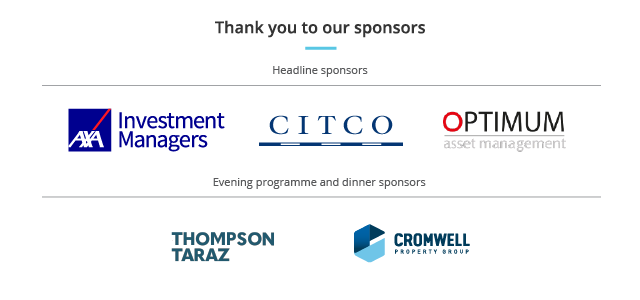Autumn Conference 2022: Maintaining progress in challenging times
Key highlights
On 9 and 10 November, 170 members came together in Marseille for the INREV Autumn Conference 2022. Together with industry expert speakers and panellists, we discussed the current macro economic climate, the geopolitical landscape and its implications for our industry as well the hot topics and trends such as alternatives, the 'S' in ESG and a closing keynote by world-renowned photographer, Jimmy Nelson who wowed the audience with his portrayal of our environment and mankind.
Programme
A few key highlights:
- Rob de Wijk, Founder of HCSS spoke on ‘Seeing Geopolitics through a new lens’
‘Crisis accelerates change and brings us together’ was the overarching thought from the opening keynote. Citing issues with China and the Russia-Ukraine war, Rob de Wijk introduced the term, ‘Flow Security’ – ‘goods, materials, energy, foods and services being weaponised. Rob closed his presentation with the idea that we must adapt our thinking – that Darwin theory applies – ‘It’s not the strongest that wins, it’s the most adaptive’
- Paul Kennedy (J.P Morgan Asset Management) joined us to share a macro economic outlook highlighting the big topics on everyone’s agenda: Inflation and a looming recession.
The combination of the COVID-19 pandemic and Russia’s war in Ukraine has reignited inflation causing markets to worry about a return to the 70’s and Paul asked the audience: Will a modest economic slowdown or a mild recession be enough to hold back the tides of inflation, or will it take much higher interest rates and a deep recession to bring it down?
- On Alternative Assets, we heard how life sciences, forestry and data centres are all niche sectors that have come to the forefront in recent years.
Michael Fuller (Brookfield Asset Management) highlighted that life science assets, typically occupied by tenants drawn from industry, academia and government, have benefitted from increased demand from aging populations; the growth of “well-being”; and COVID-19.
Martin Davies (Nuveen Natural Capital) argued that successful management of Forestry assets boosts biodiversity, sustainable development and carbon sequestration. This asset can be seen as part of the solution to climate change on a global scale given the variety of species and crops involved and geographies ranging from the USA to Brazil and further worldwide.
On Data Centers, we heard that demand comes from growth in AI and the large tech giants. Presenting this Alternative, Therese Norling (Areim) shared the statistic that 90% of data stored has been created in the last two years by tech companies who use between 8-10% of global electricity and create between 2-4% of total CO2 emissions. However, typically part of an operational real estate model, the Nordic model used as an illustration contributed to sustainability by utilising cross-laminated wooden construction methods as well as re-circulating the heat produced for shrimp farming and food production.
- Panelists in Thursdays Affordable Housing session, Andrew Allen (Savills IM), Nathalie Caillard (Ampere Gestion) and Wim Wensing (Amvest) all agreed that the limitation on existing stock leads to scalability issues in the UK, France and Netherlands respectively.
In the UK, the government leans on the private market, while in France, a scheme to match social and free market rent has proven to be very useful. In the Netherlands, policy makers are working on new legislation around social housing to try tackle the issue where the housing market is in shortage.
Presentations
Gallery
Sponsors

Share your feedback
To help us continue providing the best in class events, please do share your feedback on this event via the button below: